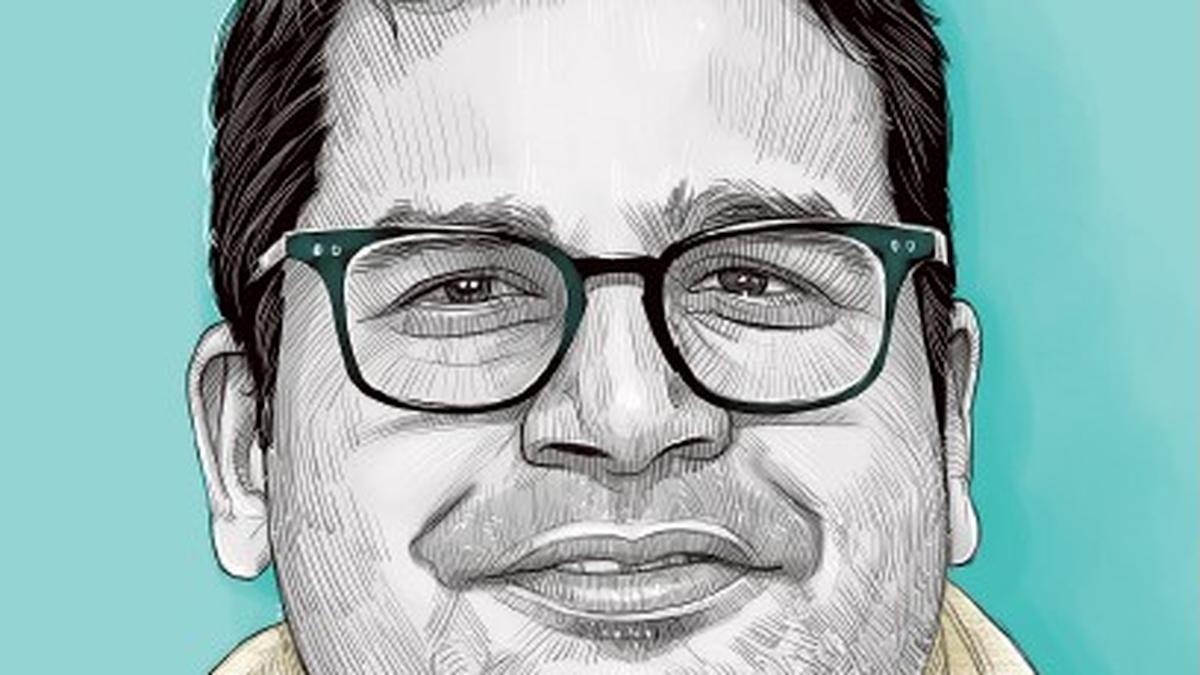ARTICLE AD BOX
Nozomi Okuhara was born on March 13. But that first line of a Wikipedia entry or even a long tale, has hugely significant implications in Japan.
Forever stuck with schoolmates who might have been born in April of previous year and hence growing faster and always taller than her, Okuhara had a strange start to her badminton, riddled with self doubts, but remained determined.
In Episode 2 of her Column series ‘Hope Moves Us Forward’, on the Note publishing platform, Okuhara spoke of a unique complex she grew up with, of being short statured. While the Sindhu-Okuhara World Championships finals of 2017 (won by Japanese) and 2019 (won by the Indian), attained fame for the sheer quality of battle on display, it was also the pitting of shuttlers, one who was 5-foot-1, the other a whole 10 inches taller at 5-foot-11.
The episode is headlines by an iconic image of Sindhu and Okuhara at the net, albeit not from the same match. But it underlines Okuhara’s tale where she opens up about battling in elite badminton as one of the smallest players.
“I think that children with small bodies and parents with small children tend to feel inferiority and anxiety. Even if you know it’s something you can’t change, I think you’ll be anxious when you see the difference in physique with other children,” the blog translated from Japanese with excerpts on her Insta page, starts.
It features QnA with her father Kiyonaga. “My child was born in March, but I was surprised by the difference in growth with those who were born in April in the same class at the nursery school.
While Nozomi would laugh off the ‘March curse’ where everyone else is taller, that holds some sway in Japan, she recalls being conscious of it without letting it deter her in any way. “It’s pitiful to be born early, so I wonder if I wanted to be born in April,” she mock-joked, adding, “It’s a story I often hear. (LoL). But I’m glad I was born in March. I don’t know my parents’ feelings, but from my own experience, I feel that early births are more blessed. Certainly, I was often told about my height. But that’s a fact that you can’t change by yourself. That’s why I’ve only been thinking about “how to fight with my abilities.”
Okuhara learn to accept that taller opponents held an advantage, but was clear she never saw being short statured as a particularly decisive disadvantage. “When I look at a player who is tall and has a long reach, I say, “That’s good, what kind of feeling must it be? I want to experience it! There are many times when I’ve thought so. But I’ve never thought, “I don’t like being short.” I’ve never been so worried about small things,” she declares.
Story continues below this ad
She recalls entering junior high school, with a height less than 140 cm. “Looking back now, I sincerely think, it was really small. When I was in elementary school, I couldn’t compete with an opponent who was over 150 cm, and now I think that I had no choice but to challenge them recklessly. However, at that time, I didn’t think of making excuses or escapes saying “I can’t help it”, I just thought, “I wonder if I don’t have any talent.””
Being the youngest also kept her on her toes, and always eager to be better given she had to compete necessarily with larger opponents. “I am the youngest of three siblings with an older brother and sister. From the moment I was born, my “social status” was at the bottom. No matter what I did, I was the worst, and it was frustrating and unbearable,” she said half jokingly. But it made her stubborn and relentless, qualities that shone through when she beat Sindhu.
Her journey of defiance though started not in badminton, but skiing.
She recalls her thinking: “I’ll follow you no matter what! With that in mind, I remember following around behind my older sister and brother, especially imitating my older brother who was close in age. Every weekend in winter, my father (a former skier) would take me to the ski resort. I couldn’t ride the lift alone, so I would get on the lift with my parents from both sides, and when I get to the top, I chased my brother with all my strength. Even the course that my brother found, which I didn’t know well, was sliding without even being afraid of going straight down.I chased my brother at home, stumbled on the futon, fell, and sewed my jaw (laughs).
“A blessed environment because I was born early!”
Adding that she experienced “slow growth”, Okuhara said she used that to get stronger in her mind. “But it is also an environment where you can always be with people who can do better than you. That’s why, as I said at the beginning, I think it was a blessed environment with stimulation to lift me up.
On the contrary, children born in April are always the best (in their class), so I think it is an environment where there is little stimulation to aim for the top.”
Story continues below this ad
She never fixated on what she couldn’t do. “I think that what you can do shines more because everyone has strengths and weaknesses, and there are things you can’t do. In my case, I grew up in a normal situation where I couldn’t do it the most among my siblings. Even at the nursery school, I don’t remember being depressed by saying, “Why can’t I be the only one?”
It helped to have supportive parents. “I think this is also a big way that parents didn’t say “Nozomi-chan is done” compared to other children. I also think that because I couldn’t compare, I was able to accept it naturally without denying “I can’t do it”. Even if you can’t do something, you should feel many things in your own way as a child in the midst of what you can’t do. The successful experience of being able to do it is also important, but more than that, I want you to take care of the way you think and how to face it when things don’t go well,” Nozomi said, urging others to look past their deficiencies.
Keeping herself busy and immersed in the game helped eventually. “In my case, “short stature” is an “unchangeable fact”, but I did not deepen my negative thoughts about it. Even though I was an elementary school student, I was busy with daily tasks, so I feel like I was desperately living that moment without having time or time to lament. It all depends on how you perceive it, but I think there are many “unchangeable facts” in the world that you can’t do anything about, not just the difference in physique. I can’t help by keeping lamenting it. (Instead I think) How to act under the given conditions? What can I do? I think I’m just thinking about what I can do, and I’m just going to challenge and move forward without hesitation.”










 English (US) ·
English (US) ·